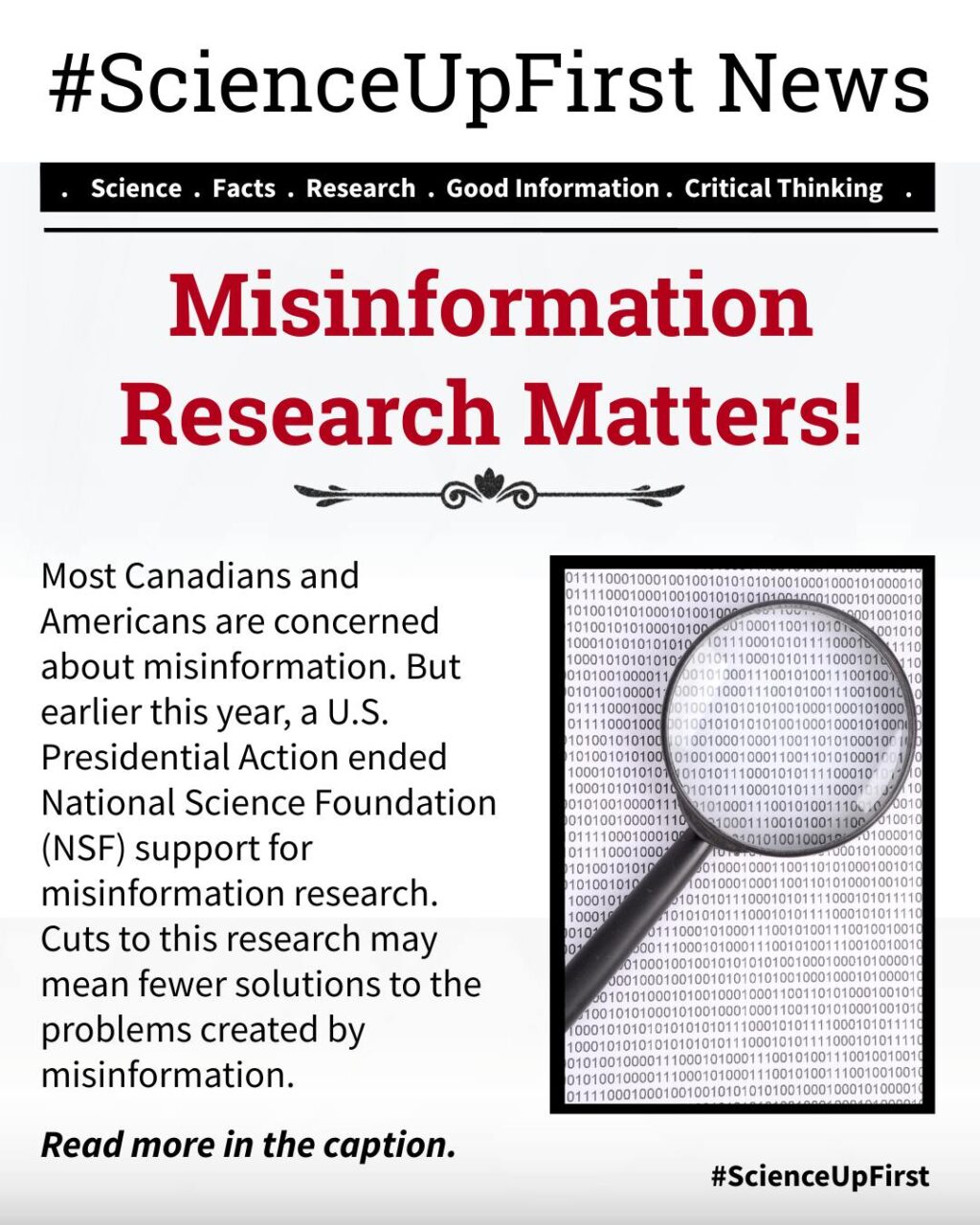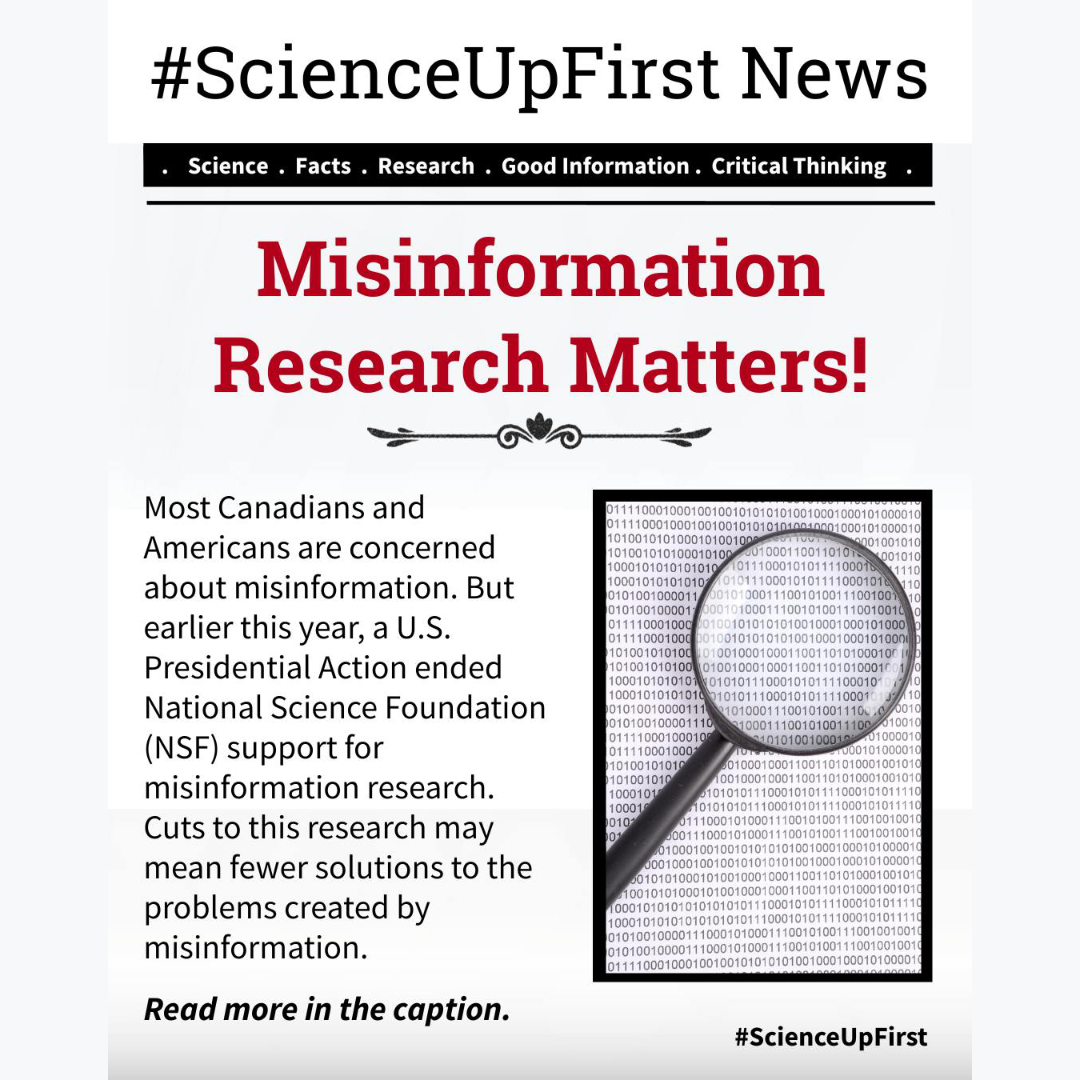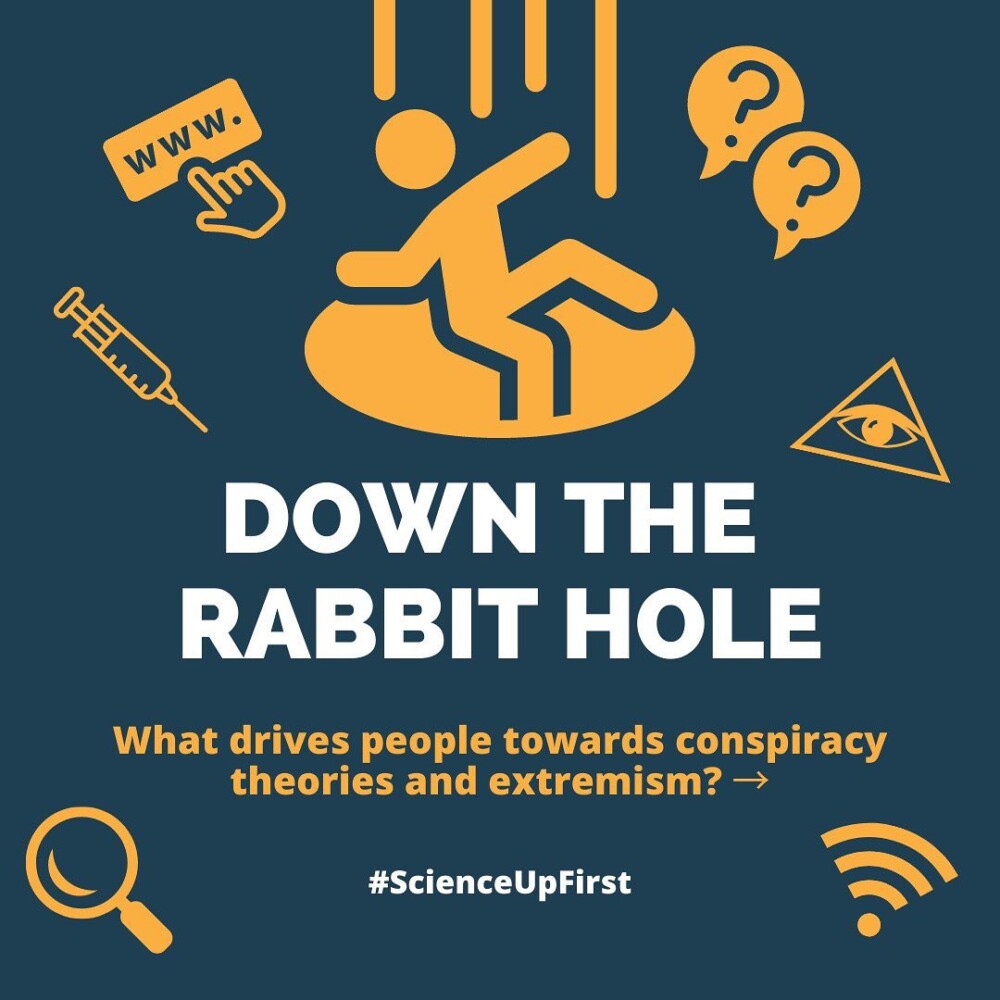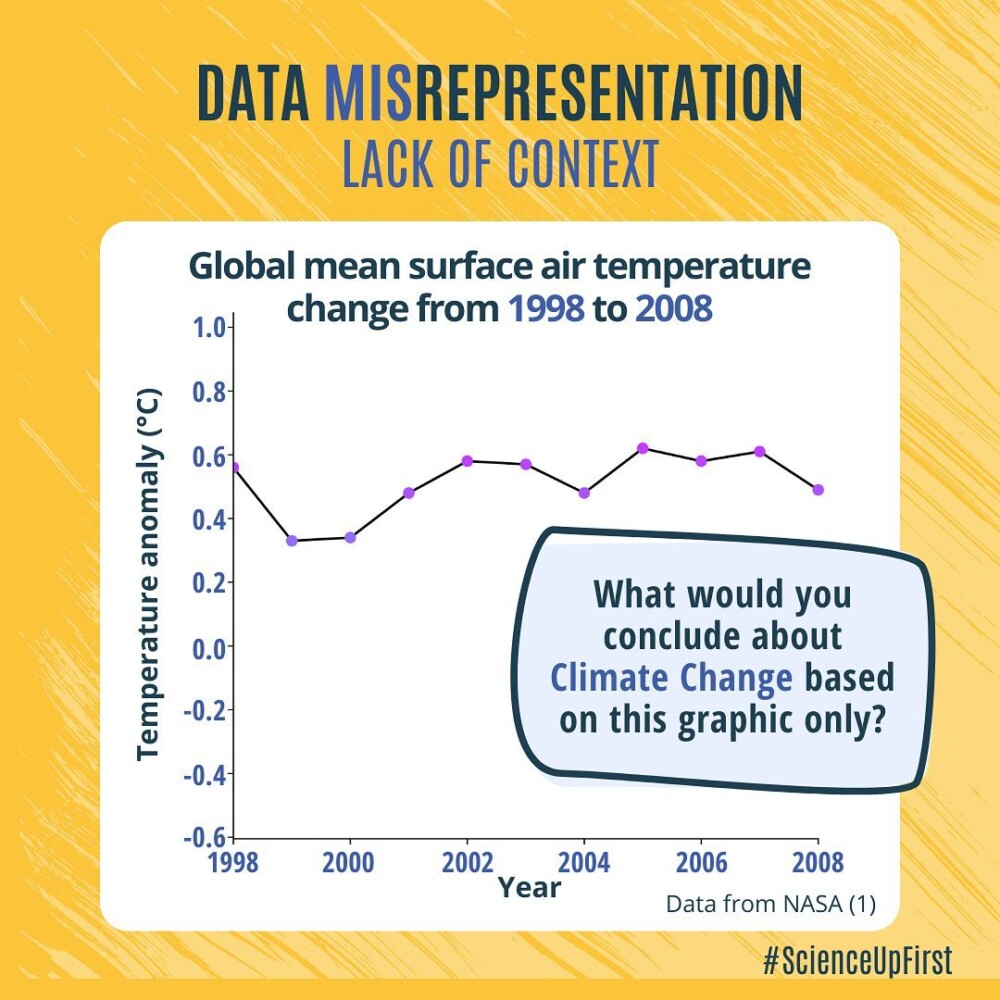
Most Canadians and Americans are concerned about misinformation (1,2). But earlier this year, a U.S. Presidential Action ended National Science Foundation (NSF) support for misinformation research, claiming that it interferes with free speech (3-6).
This research is important, and restricting it can cause harm.
Individually, misinformation can cause loss of trust, confusion, stress, and lead to physical harm (7-17). For society, misinformation can create economic and political distress, prevent effective emergency responses after crises, threaten public health, and create or worsen violence and discrimination (7,8,12,15-25).
Misinformation has broad impact, and is studied by many disciplines including computer science, economics, politics, law, and social science (16,26). This research helps us understand how false information spreads, how it can harm us, and what we can do about it (16,26,27). Cuts to this research may mean fewer solutions to the problems created by misinformation.
The statements from the White House and the NSF claim that misinformation research hurts free speech (3,4). This is not true. Many evidence-based responses to misinformation involve empowering people to navigate the internet better without removing any posts (17,28,29). Moderating false information online – which is supported by most Americans, though support has declined slightly over the past few years – is only one tool in the toolbelt (30-32).
- Concerns with misinformation online, 2023 | Statistics Canada | 20 December 2023
- The majority of Americans are concerned about misinformation in the news, according to new research | BBC Media | 29 October 2024
- RESTORING FREEDOM OF SPEECH AND ENDING FEDERAL CENSORSHIP | The White House | 20 January 2025
- Updates on NSF Priorities | U.S. National Science Foundation | 9 June 2025
- Trump Administration Cancels Scores of Grants to Study Online Misinformation | The New York Times | 15 May 2025
- Trump science cuts target bird feeder research, AI literacy work and more | AP News | 24 April 2025
- Infodemics and health misinformation: a systematic review of reviews | Bulletin of the World Health Organization | 30 June 2022
- The impact of fake news on social media and its influence on health during the COVID-19 pandemic: a systematic review | Zeitschrift fur Gesundheitswissenschaften [Journal of Public Health] | October 2021
- Fake News and Alternative Facts: Finding Accurate News: Why is Fake News Harmful? | ACC Library Services | 13 June 2025
- Nigeria records chloroquine poisoning after Trump endorses it for coronavirus treatment | CNN | 23 March 2020
- Prevalence of Health Misinformation on Social Media: Systematic Review | Journal of Medical Internet Research | 20 January 2021
- The disaster of misinformation: a review of research in social media | International Journal of Data Science and Analytics | 15 February 2022
- Dealing with Propaganda, misinformation and fake news – intro | Council of Europe – Democratic Schools for All | 2019
- The Landscape of Disinformation on Health Crisis Communication During the COVID-19 Pandemic in Ukraine: Hybrid Warfare Tactics, Fake Media News and Review of Evidence | JCOM – Journal of Science Communication | 8 September 2021
- The causes, impacts and countermeasures of COVID-19 “Infodemic”: A systematic review using narrative synthesis | Information Processing and Management | 4 August 2021
- (Why) Is Misinformation a Problem? | Perspectives on Psychological Science | 16 February 2023
- How to Address Misinformation—Without Censorship | TIME | 6 May 2025
- PROPAGANDA AND CONFLICT: EVIDENCE FROM THE RWANDAN GENOCIDE | The Quarterly Journal of Economics | November 2014
- Another Hurdle in Recovery From Helene: Misinformation Is Getting in the Way | The New York Times | 6 October 2024
- COVID-19: time to flatten the infodemic curve | Clinical and Experimental Medicine | 8 January 2021
- Facilitators and Barriers of COVID-19 Vaccine Promotion on Social Media in the United States: A Systematic Review | Healthcare | 8 February 2022
- What factors promote vaccine hesitancy or acceptance during pandemics? A systematic review and thematic analysis | Health Promotion International | 17 February 2022
- Misinformation of COVID-19 vaccines and vaccine hesitancy | Nature | 11 August 2022
- Parental Perspectives on Immunizations: Impact of the COVID-19 Pandemic on Childhood Vaccine Hesitancy | Journal of Community Health | 23 July 2021
- COVID-19 pandemic fuels largest continued backslide in vaccinations in three decades | World Health Organization | 15 July 2022
- A survey of expert views on misinformation: Definitions, determinants, solutions, and future of the field | Harvard Kennedy School Misinformation Review | 27 July 2023
- Liars know they are lying: differentiating disinformation from disagreement | Humanities and Social Sciences Communications | 31 July 2024
- Evidence-based strategies to combat scientific misinformation | Nature Climate Change | 14 January 2019
- Countering Disinformation Effectively: An Evidence-Based Policy Guide | Carnegie Endowment for International Peace | 31 January 2024
- Across parties, Americans accept removal of false health info by social media companies, survey says | Boston University College of Communication | 25 January 2025
- Support dips for U.S. government, tech companies restricting false or violent online content | Pew Research Center | 14 April 2025
- Online content moderation: What works, and what people want | MIT Management Sloan School | 31 March 2025
Share our original Bluesky Post!
Research on misinformation is vital and recent funding cuts in the U.S. have put everyone at risk. Understanding misinformation = better protection against it. 👉 scienceupfirst.com/misinformati… #ScienceUpFirst
— ScienceUpFirst (@scienceupfirst.bsky.social) June 18, 2025 at 9:35 AM
[image or embed]
View our original Instagram Post!




